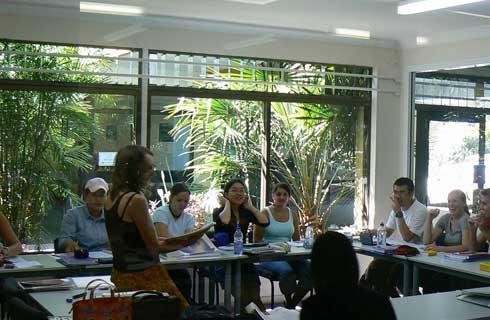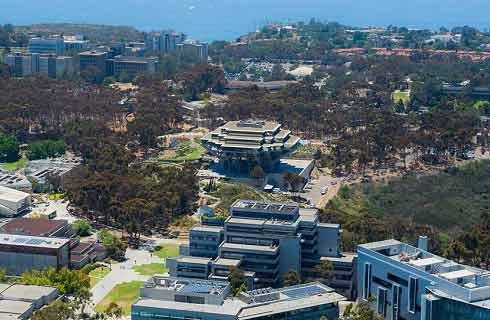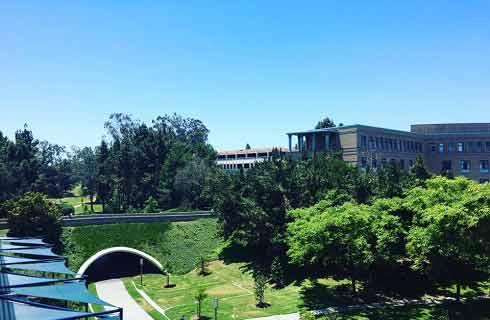理学学士和护理硕士-物理
Bachelor of Science and Master of Nursing - Physics

学历文凭
Dual Degree

专业院系

开学时间

课程时长

课程学费

国际学生入学条件
IDP—雅思考试联合主办方

雅思考试总分
- 雅思总分:
- 托福网考总分:
- 托福笔试总分:
- 其他语言考试:
CRICOS代码: 069880D
申请截止日期: 请与IDP联系 以获取详细信息。
课程简介
The combined Bachelor of Science and Master of Nursing program cultivates the critical thinking skills and breadth of the sciences alongside the expertise and experience to become a registered nurse. It provides a wide range of career opportunities across both clinical and non-clinical settings. As a science and nursing student, you will learn from our leading academics from across the sciences and healthcare disciplines. The Bachelor of Science emphasises fundamental principles and discovery research underpinned by critical analytical capabilities. You can major in one of many areas of science, with elective units allowing you the flexibility to explore different branches and interests. You will gain an understanding of the impact of nursing practice within local and global health contexts, and across changing healthcare systems. You can complete this combined degree program in four years of full-time study, after which you will graduate with two qualifications. Upon graduating will be eligible to apply for registration with the Nursing and Midwifery Board of Australia. With a diverse range of experience and expertise, you will be highly employable in both clinical and non-clinical settings. Ranked 15th globally by subject area, the University of Sydney is a world leader in nursing education and research. Our Faculty of Science is ranked in the top 50 in the world for natural science, and you will learn in our state-of-the-art facilities including the Sydney Nanoscience Hub and the Charles Perkins Centre, with its focus on obesity, diabetes and cardiovascular disease.Study physics and you'll not only become a good scientist, you'll also have a degree in how to solve problems. You'll learn how to design and conduct experiments and how to analyse the results. Physics explores the fundamental structure of the universe, starting with the smallest subatomic particles. It has provided the foundation for much modern technology, from smartphones and tablet computers to medical imaging equipment. Our physics students learn from internationally recognised experts, contribute to original research, and become part of our community of scientists. We offer comprehensive programs that cover the basic physics concepts and key ideas in modern physics. Our courses are flexible, allowing you to study topics that interest you most.Physics is a generalist major that, instead of preparing you for a narrow career path in just one area, allows you great freedom of choice in your ultimate employment. This may appeal to students who have not yet committed themselves to one career choice. Physics graduates receive excellent training for hundreds of careers: jobs requiring critical reasoning, logical thought, data analysis, teamwork and problem solving are commonly filled by physics graduates. Recent graduates have found employment in companies such as Google, Microsoft, Intersect Australia, Telstra, BHP Billiton, Canon and research organisations such as CSIRO, ANSTO, DST and NASA. Among Sydney physics graduates you will find chief executives and senior managers, entrepreneurs, patent attorneys, software engineers, consultants, astronomers, geophysicists, actuaries, quantitative analysts, data scientists, meteorologists, museum curators, science communicators and research scientists.After majoring in physics, you may choose to do further study, which will help shape your career in physics, such as doing Physics Honours and a PhD for a career in scientific research and technology; or a Master of Medical Physics for a career as a hospital-based medical physicist.
相关申请
 预科
预科 奖学金
奖学金 实习机会
实习机会 在校学习
在校学习 跨境学习
跨境学习 校园授课-线上开始
校园授课-线上开始 在线/远程学习
在线/远程学习
开学时间&学费
学费信息仅供参考,请与IDP联系以获取详细信息
| 开学时间 | 时长 | 学费 | 地点 |
|---|
学校排名

世界排名60
数据源:
泰晤士高等教育世界大学排名
关于悉尼大学

位于澳大利亚首都的悉尼大学是举世闻名的机构,一直名列世界前20名大学之列(2024年QS世界大学排名)。在2022年QS毕业生就业能力排名中,悉尼大学的毕业生也位居澳大利亚第一和世界第四。来自世界各地的学生进行本科和研究生水平的学习。学生可以在澳大利亚最广泛的课程和学科中选择。该大学提供超过400个学习领域供学生选择,大学5门学科位居世界前十名,另外还有28门学科位居世界前50名(2022年QS世界大学学科排名)。通过实习和工作经验以及通过大学海外项目进行国际交换(包含在学位内的可选项目),从而增加了学生的就业机会。学生将在支持和启发的环境中学习和发展,大学会提供给学生大量的服务,这包括学术和专业支持,残疾服务,保密咨询服务,健康服务还有财务援助办公室提供服务。学生还可以参加由悉尼大学学生会(USU)运营的250多个校园俱乐部和社团,从体育运动到文化团体应有尽有。校园内有许多可供学生使用的设施,其中包括带奥林匹克规格温水游泳池的健身室和攀岩中心。此外,还有美术馆、博物馆、咖啡馆、餐厅和酒吧供学生休闲。学生还可以使用南半球最大的学术图书馆。悉尼是世界上最优秀的城市,根据《经济学人》2021年安全城市指数显示,悉尼被评为第四大最安全的居住地,当地的学生体验得以丰富和提升。
本校相关课程

Graduate Certificate in Clinical Dentistry - Advanced Restorative
学历文凭
Graduate Certificate
开学日期
课程费用总额


Graduate Diploma in Clinical Dentistry - Advanced Restorative
学历文凭
Graduate Diploma
开学日期
课程费用总额


城市和区域规划研究生文凭
学历文凭
Graduate Diploma
开学日期
课程费用总额


教育硕士
学历文凭
Masters Degree (Coursework)
开学日期
课程费用总额


专业工程学硕士(电力)
学历文凭
Masters Degree (Coursework)
开学日期
课程费用总额


专业工程学硕士(电信)
学历文凭
Masters Degree (Coursework)
开学日期
课程费用总额

其他相关课程

MPhys(荣誉)与天体物理学(在国外学习一年)
 约克大学
约克大学泰晤士高等教育世界大学排名:155
学历文凭
Bachelor Degree
开学日期
课程费用总额


理学士(荣誉)物理学(预科)
 约克大学
约克大学泰晤士高等教育世界大学排名:155
学历文凭
Bachelor Degree with Honours
开学日期
课程费用总额


MSc Compound Semiconductor Physics
 卡迪夫大学
卡迪夫大学泰晤士高等教育世界大学排名:204
学历文凭
Masters Degree (Taught)
开学日期
课程费用总额


数学和物理学理学硕士(荣誉学位)
 巴斯大学
巴斯大学泰晤士高等教育世界大学排名:287
学历文凭
Undergraduate Masters
开学日期
课程费用总额


Bachelor of Space Science
 皇家墨尔本理工大学
皇家墨尔本理工大学学历文凭
Bachelor Degree
开学日期
课程费用总额


物理学博士
 英国女王大学
英国女王大学学历文凭
Ph.D.
开学日期
课程费用总额










